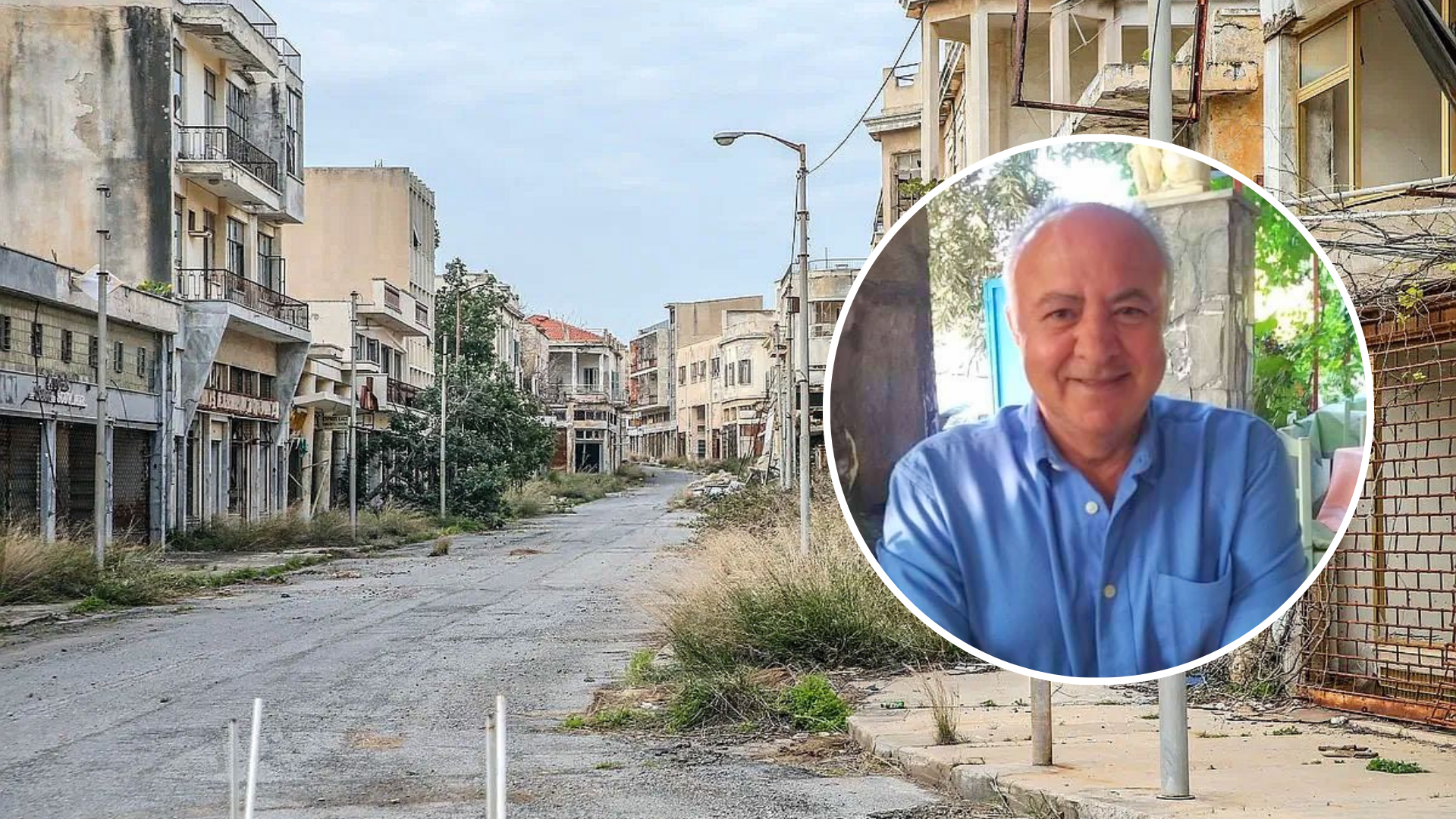A 35-year-old Greek-Cypriot gentleman, with whom I spoke to for this article, wanted to only be identified as A.K. and insisted on “no photos of myself please.” He has been living and working in Australia for almost six years.
As to his preferred anonymity, he says: “We all have different opinions. Though my father was in the army in Cyprus back then, we are from South Cyprus – not refugees [like the Greek-Cypriots forced to move from North to South Cyprus during the 1974 Turkish occupation and population exchange]. Hence, I don’t want to potentially misinform nor be misunderstood as I didn’t directly live that experience. The invasion of Cyprus is a sensitive issue.”
Fair enough, I thought, but said “you’re in Australia now, so surely you can feel ‘safe’ in expressing your views?”, to which A.K. reiterates that he doesn’t want to potentially step on anyone’s toes. He further clarified that there are many Cypriot organisations in Australia and he is part of one or two, and “… I just want peace.”
Point taken.
“Though my father never talks about his army experiences and as my parents and family did not live in the areas that are now occupied, I have nonetheless heard stories from them and others around me who lived through the war and the fear. Most of what I learned though came from school, with the main message always being peace,” he says.
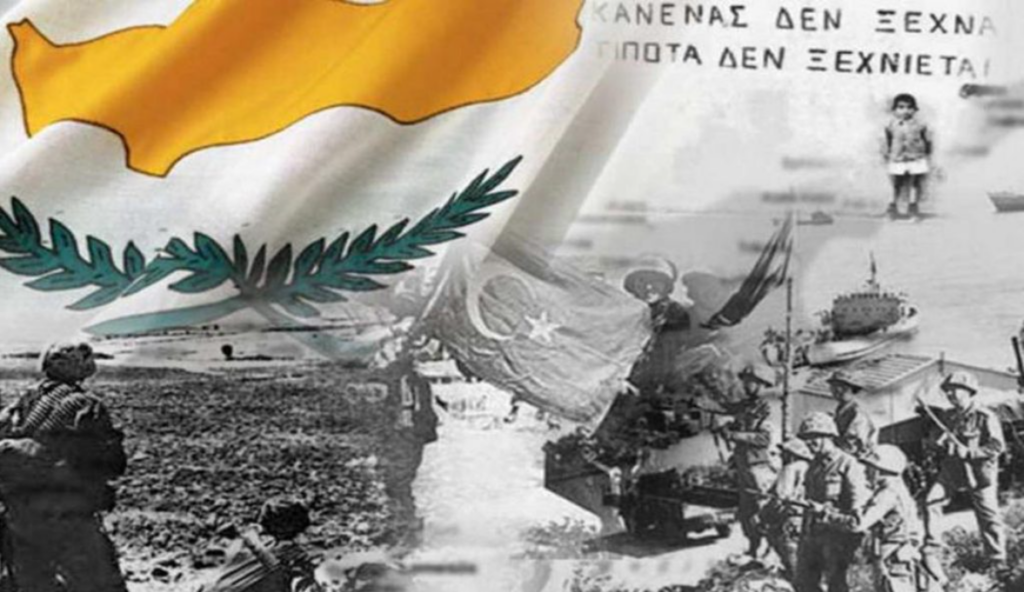
Peace is what all Cypriots want, he stresses, noting that most blame the British for what happened as “Greek and Turkish-Cypriots lived in peace before the British became involved way before 1974.”
“We were even koumbaroi (best men at weddings) in many cases! We’d go to the same kafeneia (cafes) and even the local Greek Orthodox priests and Imams were friends,” he adds.
A.K. says that you can visit the Turkish occupied, northern Cyprus with your passport, adding “the Cypriot Turks allow Greek-Cypriots who visit and have a former home there, to see it, but the ‘settler’ Turks forbid this.”
Apparently the “settlers” – Turkish people from Turkey who settled there from 1974 – hold a more nationalistic stance, whereas the Turkish Cypriots who lived there before the invasion are “a more cultured people who lived in harmony with the Greek-Cypriots and retain a more cosmopolitan and/or open world view.”
My interviewee shares some photos of Ammochostos, also referred to as Famagusta, in the north of Cyprus, likening it to “Australia’s Gold Coast.” He refers to it as a “ghost city” unlike its pre-Turkish occupation heyday as a popular world class resort.
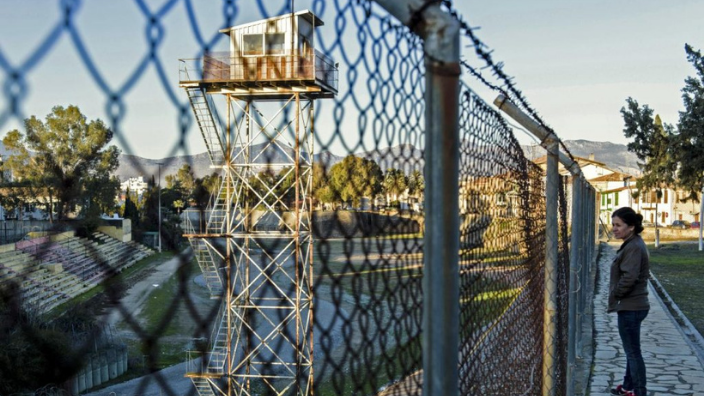
It is now slowly being turned into a tourist resort again by Turkey; a source of consternation not only for the Greek-Cypriots, but also for many others as no other country in the world apart from Turkey officially acknowledges the so-called “Turkish Republic of Northern Cyprus (TRNC).”
A.K. closes, saying: “Without fanaticism and political interests, things could’ve happened differently. Cyprus is a very beautiful and unique country with a special geographic position. In the meantime, apart from working in Australia, I travel this wonderful country, and have seen beautiful parts including beaches, but nothing like Cyprus. I hope to return, but am not sure if this will happen…”
‘We were trapped there’:
I also spoke with Sampson Angelis, a recently retired Greek-Cypriot gentleman with no relation to Nick Sampson – acting President of Cyprus in 1974.
Mr Angelis, who has lived in Athens, Greece since 1982, was born in northern Cyprus before it was occupied, and has first-hand experience of the Turkish invasion.
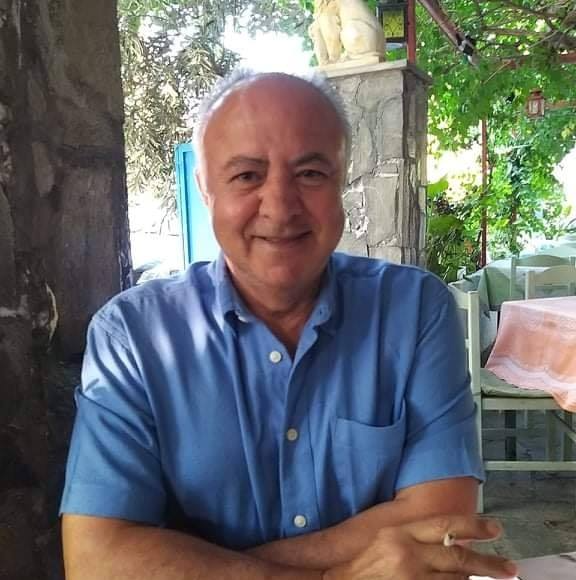
“I am from a family of many brothers and sisters and my father was a farmer. In fact, the name of our village, very close to the resort town Famugusta, was called Bokolida – related to the Greek (voidia) – cattle land. I was 13 when the Turks occupied. We were trapped there, but to be honest we didn’t have that much to do with Cypriot-Turks anyway, as our village was populated by Greeks,” Mr Angelis says.
“Nearby villages were mixed and there was no trouble before the 1974 occupation, or even after really by the local Cypriot Turks, but when the Turkish government brought in their Turkish soldiers, it is true that there was bloodshed and rape.”
Astounded at his relaying of ‘living history,’ he tells me these soldiers “were overly aggressive, sharpening their knives in front of us kids, slashing trees and power poles and loading their guns with bullets.”
“Thank God we survived,” he adds. “Our family was the last to leave the village in 1977, but at that point it was only my mother and my two youngest siblings as my father died of cancer a year later in 1975, and us older ones left to study in the city of Larnaca in September of 1974.”
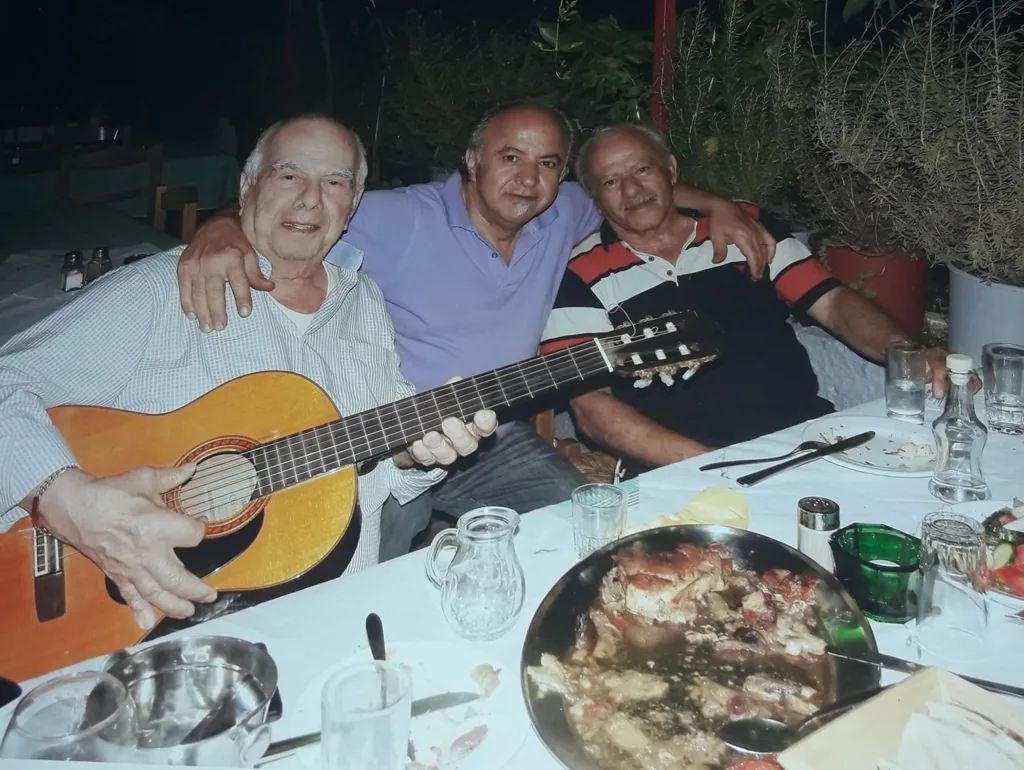
Since the borders of Turkish occupied northern Cyprus opened for visitors, Mr Angelis visits often.
“I went in 2003 with my then-young sons. It was an important part of me being a parent. My nationality is Greek, but my homeland is Cyprus and I want my kids to really know their heritage, not only to read or talk about it. It’s more impactful when you combine words with actual real images. Yet, it’s so heartbreaking to be close to your home, but be unable to live there,” he says.
The very recently retired Mr Angelis has been a restaurateur in Greece since 1993. He tells me that his contribution as a Greek-Cypriot to the community has been mostly through his long running Cypriot tavern, preserving and sharing the island’s gastronomy, hospitality and tradition.
